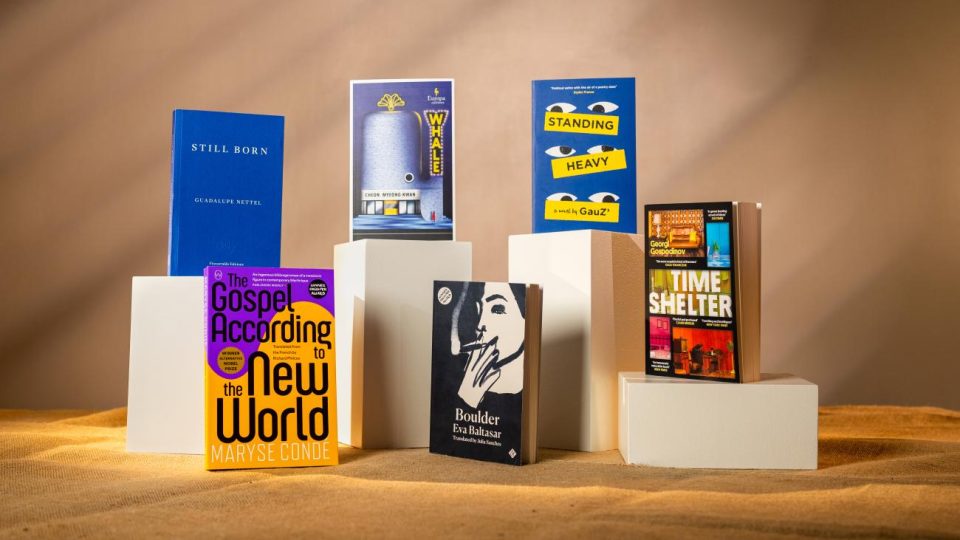
2023 International Booker Prize: A glimpse into the six novels on the shortlist

Tonight, amid much anticipation, the winner of the 2023 International Booker Prize will be announced at a grand ceremony held at Sky Garden in London. The shortlist features novels from six countries and four continents, including two debut novels and a final work, a swan song, by an established author. The judging panel, led by renowned French-Moroccan novelist Leïla Slimani, consists of experts in literature and translation. As we wait for best international fiction translated into English, here is a peek into the six novels on the shortlist. May the best book win!
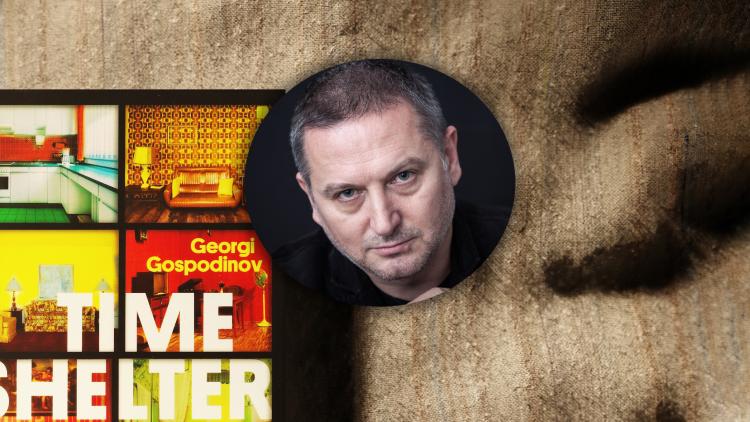
Time Shelter by Georgi Gospodinov, translated by Angela Rodel (Hachette India): Georgi Gospodinov (55) is the best-known and most translated Bulgarian writer, poet and playwright. Time Shelter, his third novel, is an exploration into the power of the past. At the heart of the story is an enigmatic flâneur named Gaustine, who opens a ‘clinic for the past,’ dedicated to providing solace to patients with Alzheimer’s. Gaustine recreates the comforting environments of their pasts, allowing them to relive cherished moments and find respite from the disorienting present.
Within the walls of Gaustine’s clinic, patients are transported to the periods of their lives where they felt the most secure and grounded. In this reflection on memory, identity, and the profound human need for a sense of belonging, Gospodinov weaves together the tapestry of each patient’s past, immersing readers in the profound emotional journeys of the characters. In an interview to the Booker Prize Foundation, Gospodinov said that he wanted to “tell this story about the ‘referendums on the past’, undertaken by every European country. How does one live with a deficit of meaning and future? What do we do when the pandemic of the past engulfs us?” The global rise of populism, the allure of an idealized past, and events like Brexit served as catalysts for him to explore the theme of living in a world with “a deficit of meaning and future.”
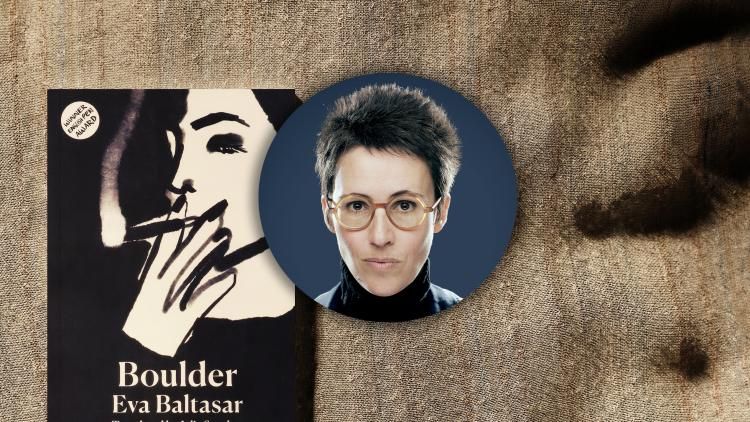
Boulder by Eva Baltasar, translated by Julia Sanches (And Other Stories/Simon & Schuster India): In her evocative and daring novel, Boulder — a follow-up to her highly acclaimed novel, Permafrost — Catalan poet and writer Eva Baltasar (44) delves into the complexities of queer love and motherhood. It follows two women who are unyielding in their pursuit of living life on their own terms. Within just over 100 pages of exhilarating prose, Baltasar captures, as the jury termed it, ‘a myriad of sensations and experiences’, creating a potent narrative that explores the depths of human desire and the sacrifices made in the quest for intimacy. The novel lays bare the dilemmas faced by its characters as they navigate the delicate balance between independence and connection.
Also read: How International Booker Prize spotlights world’s under-represented languages
Baltasar exposes the gritty and enchanting aspects of love and motherhood, delving into the darker realms that exist beneath the surface. As Baltasar once again captivates readers with her incisive storytelling and unflinching exploration of the complexities of relationships and personal fulfillment. In Boulder, desire intertwines with vulnerability, and the pursuit of freedom and self-expression clashes with the demands of societal norms. Baltasar told the Booker Prize that she was driven to write the novel because she was ‘fixated on the idea of getting to know a woman, through literature, who could embody a boulder; a woman like that isolated, solitary rock; a living metaphor at the mercy of the elements and weather, with cracks that allowed me to dig into her and uncover the secret hardness inside.’
Still Born by Guadalupe Nettel, translated by Rosalind Harvey (Fitzcarraldo Editions): Mexican writer Guadalupe Nettel (49) has garnered international recognition with her critically acclaimed previous novels like The Body Where I Was Born (2011) and After the Winter (2014), which received the prestigious Herralde Novel Prize). Still Born (2020), her fourth novel, follows the lives of best friends Laura and Alina, who both share a reluctance to embrace motherhood. However, as they reach their mid-30s, their perspectives begin to shift.
Also read: Perumal Murugan misses out on International Booker Prize shortlist
Laura, the novel’s narrator, chooses to undergo sterilization as a way to protect herself from societal pressure, while Alina unexpectedly finds herself yearning for a child. When Alina becomes pregnant, complications arise, leading to emotional and ethical dilemmas. Amidst these personal journeys, Laura forms an unlikely friendship with Nicolás, the son of her new neighbour. Still Born explores the concept of motherhood and the choices we make, challenging societal expectations and highlighting the various ways we experience and define motherhood. With sharp wit and insightful commentary, the novel uncovers the constraints and pressures faced by women in today’s world.
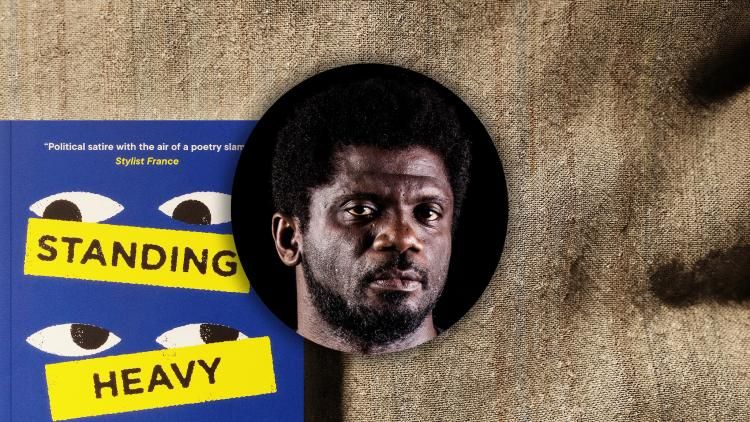
Standing Heavy by GauZ’, Translated by Frank Wynne (MacLehose Press):The debut novel by Ivorian writer GauZ’ blends migration, capitalism, and exploitation to deliver a poignant social critique that has the potential to resonate with readers across the globe. Skillfully translated by Frank Wynne, the satirical novel unravels the lives of undocumented security guards in Paris. Set against the backdrop of political debates and the shifting landscape of French immigration policies, it delves into the struggles and aspirations of two generations of Ivorian individuals living as undocumented workers.
Also read: ‘Caste Pride’ review: Manoj Mitta illuminates caste’s legal odyssey in post-Independent India
Besides offering an insight into the world observed by security guards, it also serves as a sharp and witty deconstruction of colonial legacies and capitalist consumption. GauZ’ captures the struggles, hopes, and resilience of these individuals as they strive to make their way in an unfamiliar and often hostile environment. With a mix of personal experiences, social commentary, and dark humour, it sheds light on the broader themes of power dynamics, colonialism, and the human quest for dignity and belonging. The novel is inspired by the author’s personal experience. GauZ’ told the Booker Prize: “When I found myself working as a security guard during the sales in a department store in Paris, I immediately understood that this device was ideal for observing without being seen. I was at the very heart of the absurdity of the consumerist society. And as an African, I could finally be a ‘reverse ethnologist’, coolly describing the behaviour of those who had described us as entomologists describe ants.”

Whale by Cheon Myeong-kwan, translated by Chi-Young Kim (Europa Editions): Whale, a captivating adventure-satire by South Korean writer Cheon Myeong-kwan (59), takes readers on an epic journey through the transformative changes of the country’s transition from pre-modern to post-modern society. Set in a remote village, the novel introduces three interconnected characters: Geumbok, an ambitious woman in relentless pursuit of an indescribable thrill; Chunhui, her mute daughter who communicates with elephants; and a one-eyed woman with the power to control honeybees. With its surprises, wicked humour, and rich imagination, Whale showcases the unique storytelling prowess of one of South Korea’s most original voices, offering — in the words of the jury — “a carnivalesque fairytale that celebrates independence, enterprise, and the spirit of self-transformation.”
Touted to win the prize, it is a riotous book, a picaresque quest that traverses Korea’s landscapes and history. It introduces vivid characters, who are at once “foolish yet wise, awful yet endearing, and forever irrepressible”. Inspired by the image of a larger-than-life woman and the tragic weight of her corporeality, Cheon Myeong-kwan crafts a tale that explores themes of physicality, loneliness, and the human desire for connection and purpose. Whale shines new light on the societal changes of a rapidly evolving nation.
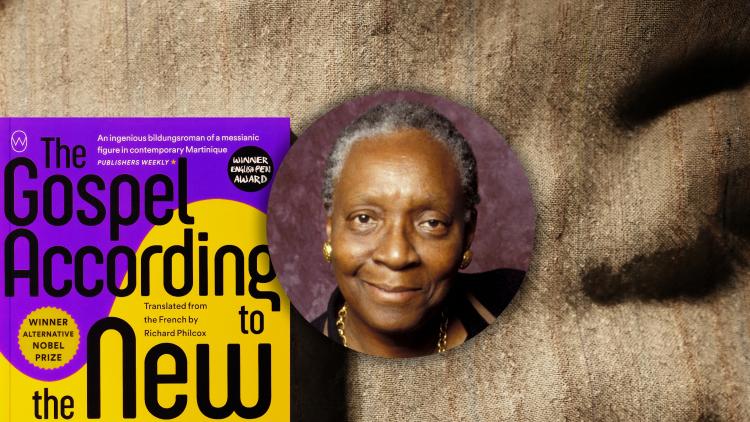
The Gospel According to the New World by Maryse Condé, translated by Richard Philcox (World Editions): In this final novel by French author Maryse Condé (86), a rumour spreads of a miracle baby believed to be the child of God. As the story unfolds, Baby Pascal emerges as a strikingly beautiful child with brown complexion and mesmerizing grey-green eyes. The question of his origins and divine nature lingers, gaining traction with the presence of signs throughout his life. Pascal embarks on a series of journeys, moving from one community to another in search of his true identity and the purpose of his mission. With the fate of humanity at stake, he delves into the depths of his existence, seeking answers and uncovering the revelations of the New World Gospel. Drawing upon the tradition of magical realism, Condé combines humour, poetry, and profound insights, crafting a story that captivates with its vibrant colours, vivid characters, and layered themes, according to the jury.
Inspired by the clash between her mother’s devout faith and her father’s adamant atheism, Condé translates the dichotomy into a tale infused with humour and irony. It was after reading works such as José Saramago’s The Gospel according to Jesus Christ and J.M. Coetzee’s famous trilogy on the same subject that Condé found the courage to explore this complex dynamic in her novel. With a blend of depth and lightness, Condé weaves a compelling narrative that explores the intricacies of belief, identity, and the power of storytelling.


